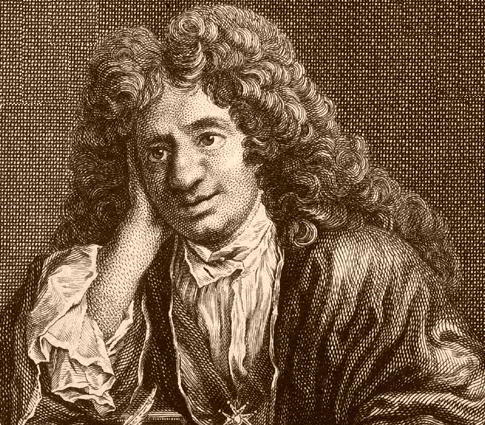 Born: December 15th 1657
Born: December 15th 1657
Died: June 18th 1726 (aged 68)
Lalande was born in Paris and died in Versailles (so he didn't get far, geographically speaking, in his life time!) He was a contemporary of François Couperin, Jean-Baptiste Lully and Marin Marais.
He sang in choirs until aged around 15. We don't know who taught him, but he is known to have thereafter become a proficient violinist (but not good enough to get into the opera orchestra, under the care of Lully, who turned him down). Disappointed at his rejection by Lully, he took up the harpsichord and organ, becoming expert in both, to the point where he became keyboard teacher to two illegitimate daughters of the King (Louis XIV) and organist in four Paris churches.
In 1683, aged around 25, he was one of four winners of a competition to become sous-maîtres for the Royal Chapel. From there, he gradually accumulated court musician responsibilities and became quite wealthy in consequence (it was said that he was the only composer who had his own coach, for example). He remained working for the Court even after Louis XIV died (1715), but wound down the degree of his responsibilities. He eventually died of pneumonia and was buried in Notre Dame de Versailles, close to where he'd worked daily for over forty years.
Lalande is primarily known as the composer of grands motets: Latin settings of the Psalms in the grand Versailles style that combines quasi-operatic airs with more conventional motet treatment. Finely-written polyphony sits side-by-side with 'battle choruses' in the style of Lully, together with fine and elaborate orchestral writing for (usually) large forces.
He additionally wrote a lot of secular music (ballets, divertissements and pastorales) between 1682 and 1700, for the entertainment of the Royal court. He then extracted a lot of music from these pieces and re-worked them into Symphonies for the entertainment of the court during the 'King's Suppers': these were very popular.
Overall, he should be thought of as a worthy successor to Lully and the supreme French exponent of the 'high Baroque'.
There are multiple versions of a lot of his music: he revised his works a lot as time passed, partly because he was growing in technical skill, partly because he was keen to keep his music attuned to the tastes of the day. What started as broadly homophonic passages, for example, got re-written as complex polyphonic pieces; simple bits of recitative became elaborate arias or duets; orchestral parts that merely doubled choral voices were re-written to be complex, independent lines; and so on.
Note that his name is variously found in different music/CD catalogues and indexes. “De Lalande” is common (and the generally-accepted version these days), but “Delalande” is also frequent. “La Lande” and “De La Lande” are not unknown, either! The New Groves is clear it should be “de Lalande”, however.
Music Plays from my collection
(since January 9th 2021)
| Date of Play | Time of Play | Genre | Composition | Length | Play Count |
|---|---|---|---|---|---|
| Date of Play | Time of Play | Genre | Composition | Length | Play Count |